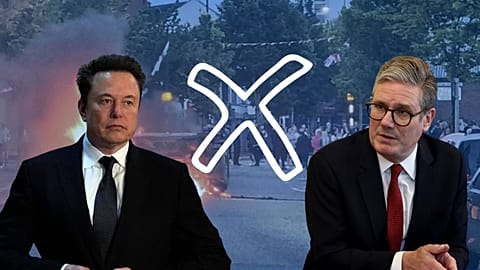The Irish data protection authority said it welcomes the agreement.
Social media platform X has suspended the processing of personal data to train its artificial intelligence tools after the company was hit with legal action earlier this week, the Irish Data Protection Authority said in a statement published late yesterday (8 August).
The Irish DPC on Tuesday filed a complaint at the High Court, over Grok, X's new virtual assistant available to premium and premium+ subscribers, after it expressed concerns about the processing of users' personal data from public posts of X’s EU users.
X previously claimed that it would allow users to decide if their public posts and engagement activity could be used to improve the models used by the AI tool.
The Irish watchdog said it welcomes X’s agreement to now suspend this data processing.
Commissioner Des Hogan said in a statement that “the developments will help us to continue protecting the rights and freedoms of X users across the EU and EEA. We will continue to engage with all data controllers to ensure the rights of our citizens under the EU Charter of Fundamental Rights and the GDPR are upheld.”
X said in response to the agreement that "people using X in the EU can continue to use Grok and control how their data is used with a simple privacy setting. We will continue to work with the DPC about Grok and other AI matters as we have been doing since last year."
Earlier this week, the social media giant said that the order the Irish watchdog sought was “unwarranted, overboard and singles out X without any justification. This is deeply troubling.”
The company claimed that it has been proactive and transparent in working with regulators on questions related to Grok since 2023.
It’s not the first time in recent months that a tech platform pro-actively suspends the roll-out of its systems awaiting legal or regulatory decisions.
US tech giant Meta said last month (18 July) that it will not roll-out multimodal AI models – so-called virtual assistants - in Europe due to regulatory unpredictability.
And TikTok, owned by Chinese company ByteDance, in April decided to suspend the roll-out of its reward program TikTok Lite after the European Commission asked questions about the impact on the mental health of users in relation to the potential stimulation of addictive behaviour.
Earlier this week, it announced that it would permanently withdraw the program from the EU market, avoiding possibly a hefty fine under the EU’s Digital Services Act (DSA).


















